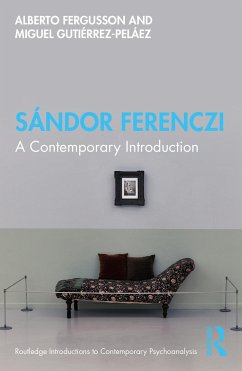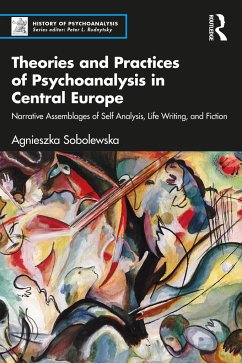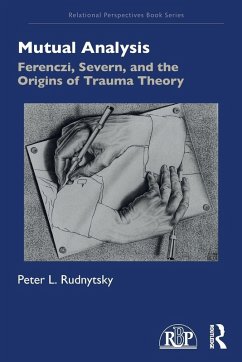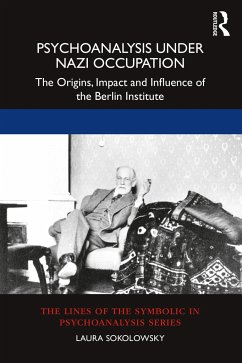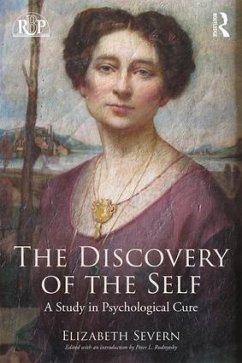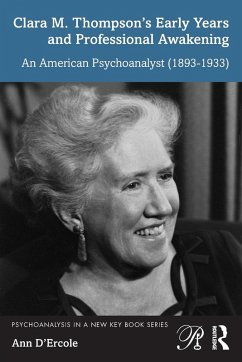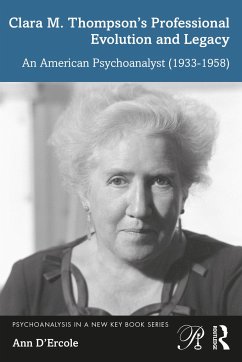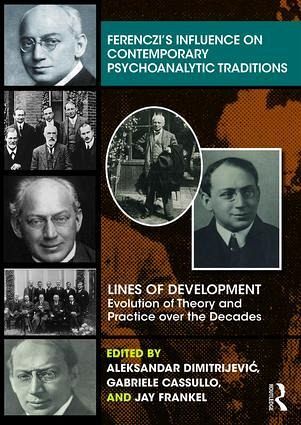
Ferenczi's Influence on Contemporary Psychoanalytic Traditions
Lines of Development--Evolution of Theory and Practice over the Decades
Herausgegeben: Dimitrijevic, Aleksandar; Cassullo, Gabriele; Frankel, Jay
Versandkostenfrei!
Versandfertig in 6-10 Tagen
59,99 €
inkl. MwSt.
Weitere Ausgaben:

PAYBACK Punkte
30 °P sammeln!
This collection covers all the topics relevant for understanding the importance of Sándor Ferenczi and his influence on contemporary psychoanalysis. Pre-eminent Ferenczi scholars were solicited to contribute succint reviews of their fields of expertise.The book is divided in five sections. 'The historico-biographical' describes Ferenczi's childhood and student days, his marriage, brief analyses with Freud, his correspondences and contributions to daily press in Budapest, list of his patients' true identities, and a paper about his untimely death. 'The development of Ferenczi's ideas' reviews ...
This collection covers all the topics relevant for understanding the importance of Sándor Ferenczi and his influence on contemporary psychoanalysis. Pre-eminent Ferenczi scholars were solicited to contribute succint reviews of their fields of expertise.
The book is divided in five sections. 'The historico-biographical' describes Ferenczi's childhood and student days, his marriage, brief analyses with Freud, his correspondences and contributions to daily press in Budapest, list of his patients' true identities, and a paper about his untimely death. 'The development of Ferenczi's ideas' reviews his ideas before his first encounter with psychoanalysis, his relationship with peers, friendship with Groddeck, emancipation from Freud, and review of the importance of his Clinical Diary. The third section reviews Ferenczi's clinical concepts and work: trauma, unwelcome child, wise baby, identification with aggressor, mutual analysis, and many others. In 'Echoes', we follow traces of Ferenczi's influence on virtually all traditions in contemporary psychoanalysis: interpersonal, independent, Kleinian, Lacanian, relational, etc.
The book is divided in five sections. 'The historico-biographical' describes Ferenczi's childhood and student days, his marriage, brief analyses with Freud, his correspondences and contributions to daily press in Budapest, list of his patients' true identities, and a paper about his untimely death. 'The development of Ferenczi's ideas' reviews his ideas before his first encounter with psychoanalysis, his relationship with peers, friendship with Groddeck, emancipation from Freud, and review of the importance of his Clinical Diary. The third section reviews Ferenczi's clinical concepts and work: trauma, unwelcome child, wise baby, identification with aggressor, mutual analysis, and many others. In 'Echoes', we follow traces of Ferenczi's influence on virtually all traditions in contemporary psychoanalysis: interpersonal, independent, Kleinian, Lacanian, relational, etc.






